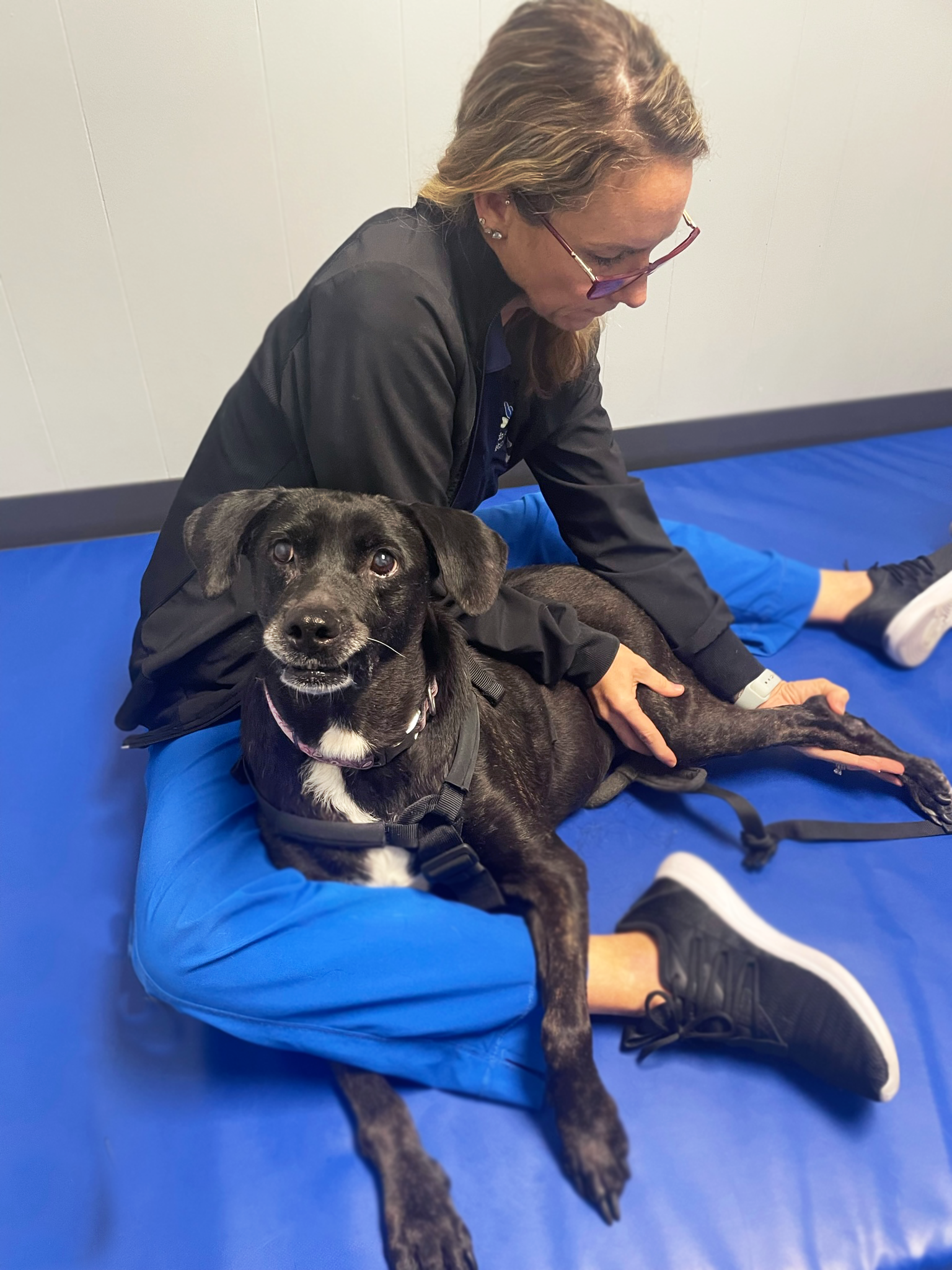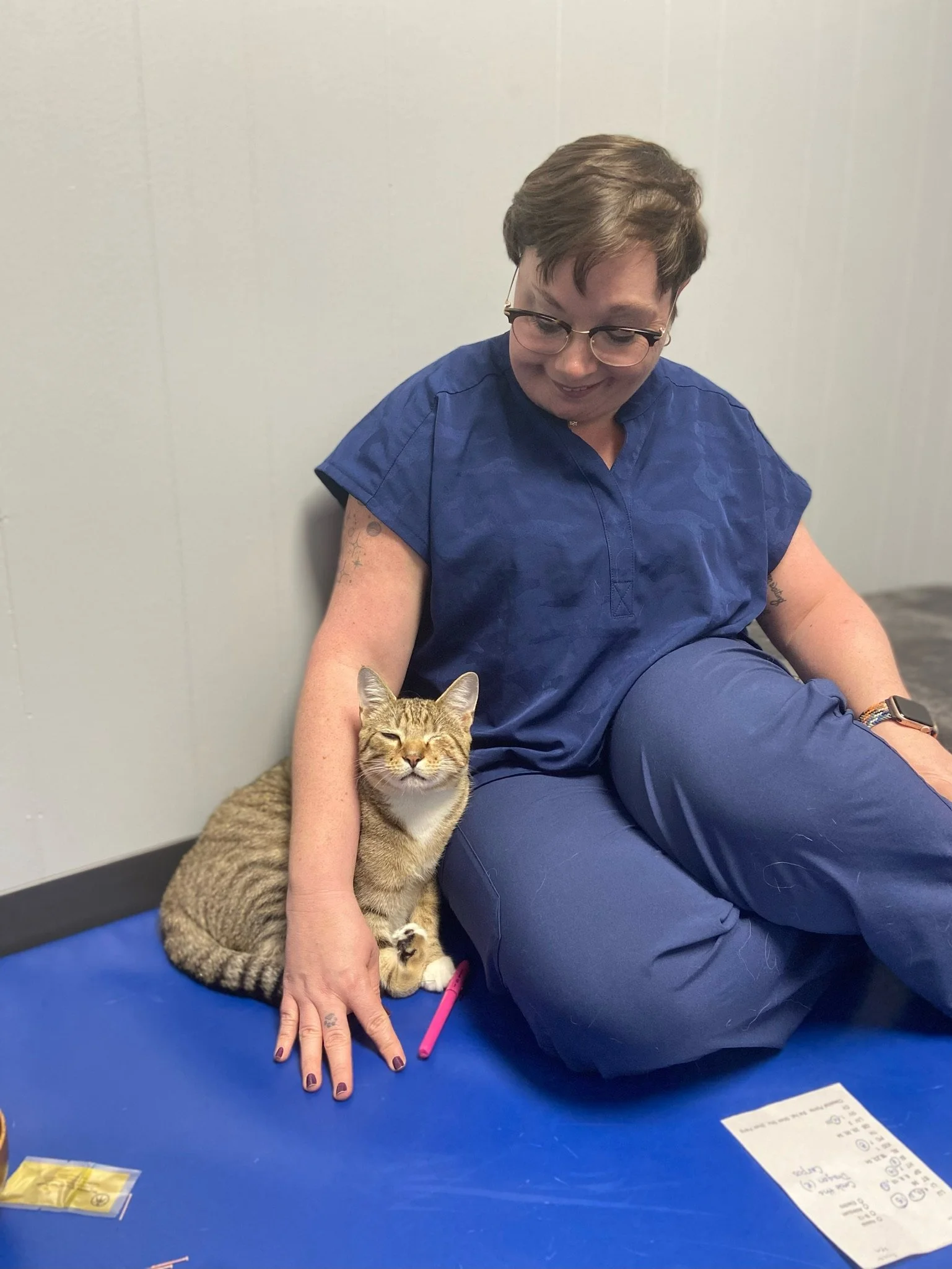Initial Rehabilitation Exam
The team of physical rehabilitation veterinarians at FVR dedicate an hour to assessing your dog or cat's condition, strength, and function to create an individualized plan to help them recover from injuries, surgeries, or chronic conditions that affect their mobility and quality of life.
Your vet will check things like:
your pet's pain level
joint movement
muscle strength
and how their nervous system is working
They'll also consider your pet's posture, weight, diet, home environment, goals, and lifestyle to understand any challenges they may face.
Based on this comprehensive assessment, your vet will create a personalized treatment plan for your pet that focuses on relieving pain, improving physical function, returning to sport, or helping them return to their favorite activities.
All of the exam findings will be discussed in detail with you, followed by a customized rehabilitation plan. Our rehabilitation plan will aim to help reduce inflammation, accelerate recovery from injury or surgery, facilitate weight loss, improve circulation, and promote overall health and wellbeing for your pet.
Initial Rehabilitation Exam FAQs
-
The first rehab visit involves a thorough orthopedic and neurological exam to assess your pet’s mobility, pain levels, strength, range of motion, and neurological function.
• Orthopedic and neurological examination to assess lameness, pain, range of motion, strength, and neurologic function. Includes palpation, joint flexion/extension, and observation of posture, gait, and mobility.
• Review of medical history, diagnostics, and current medications/supplements.
• Discussion of goals for rehabilitation and target outcomes.
• Introduction to therapeutic exercises, modalities, and assistive devices appropriate for your pet's condition. Demonstration of proper techniques.
• Development of a customized therapeutic rehabilitation plan incorporating home exercise protocols.
• Explanation of how frequently your pet should attend rehabilitation sessions based on their response and needs.
-
Your pet may undergo various assessments during their initial rehab exam like range of motion tests, lameness exams (e.g. palpation, flexion/extension), neurologic testing (proprioception, spinal reflexes), and orthopedic and neurologic tests to identify areas of pain/weakness.
-
The first appointment typically lasts 60-90 minutes. The veterinarian takes time to thoroughly assess your pet’s condition, understand their needs, and introduce them to the rehab environment. Subsequent visits average 30-60 minutes once a treatment plan is initiated.
-
Please bring your pet’s supplements, current medications, and any assistive devices (braces, slings, etc.) to the first visit. Also bring high value “yummy” treats to help with their exam.
-
After the exam, the veterinarian develops an individualized treatment plan. They’ll demonstrate exercises, modalities, and gait training appropriate for your pet’s condition, discuss goals/frequency of treatment, and ensure you understand how to safely progress your pet’s rehab at home.
-
We provide rehabilitation for a wide range of orthopedic, neurologic, and postoperative conditions including:
• Osteoarthritis/degenerative joint disease
• Cranial cruciate ligament injuries
• Intervertebral disc disease
• Tendon/ligament injuries
• Elbow or hip dysplasia
• Fibrocartilaginous embolism (FCE)
• Surgical recovery - cruciate repair, fracture repair, etc.
-
Yes, rehabilitation exercises and modalities like laser, shockwave, chiropractic, massage, and acupuncture can improve comfort, function, and quality of life for pets with injury or illness whether surgical or conservatively managed. Customized exercise is extremely beneficial.
-
Yes! Cats can benefit from rehabilitation therapies, even underwater treadmill.


